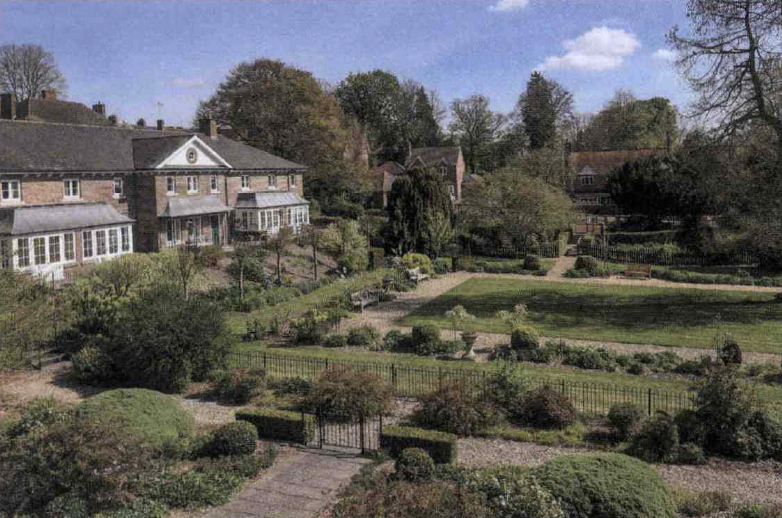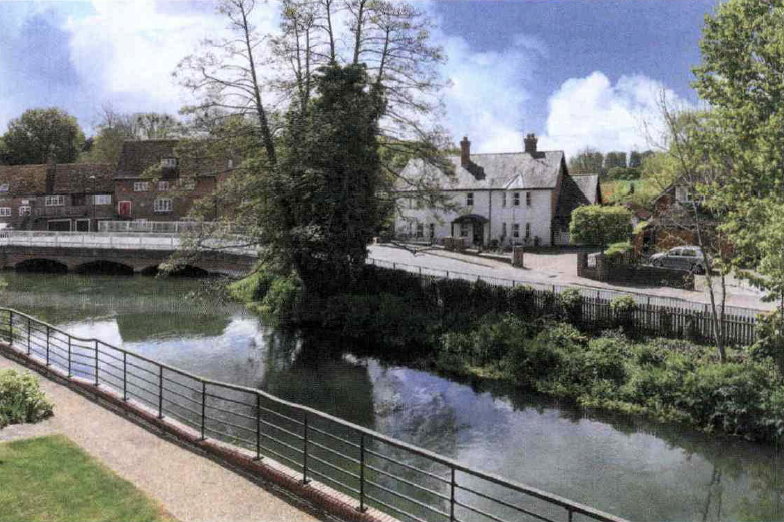The rise and rise of market towns
Go backPublished in Wiltshire Life Tuesday 1st February 2022
Richard Williams of Cognatum explains why market towns and vibrant villages are a top pick for retired property buyers.

Gardens at Wye House, development in Marlborough.
While choosing property for the long term is a consideration at any point, it is arguably even more vital in retirement when the upheaval of a move potentially becomes more challenging, and when finances are generally less flexible than during working life. And with retirement freeing up the hours formerly dedicated to work, it is particularly important to like where you live and all it has to offer.
So how can those buying a retirement home be sure they are choosing the right location?
The big question is generally around whether to stay in a familiar area, or to move to be near family, or to pick a new area that meets other needs or aspirations. But once the general area has been decided upon, there is the next big question: rural, city or town?
From a day-to-day point of view, the ability to walk to facilities such as pubs, shops, church, and local friends should not be underestimated. Retirement brings with it the advantages of more leisure time, and the benefits of plenty of interest on the doorstep are significant.
Rural isolation means relying on driving, while a city can be overwhelming and feel anonymous. But a market town or large village can be the perfect solution; it has the sense of community that a lot of larger towns have lost, with numerous clubs and societies; and it remains in tune with the surrounding countryside which is in itself easily accessible.
A market town will certainly have a well-defined centre with plenty of independent shops, cafes, pubs and restaurants. Life will go on even when it gets dark, there
is always a buzz, and the joy of people watching in a safe environment. And also, the aesthetics of the surroundings – market towns are generally handsome places with attractive buildings and a sense of history.
There will be a huge array of clubs and societies such as art, heritage, am-dram, rambling and gardening, and a wide demographic of residents and cross section of ages. There will be plenty of life, but at a more ‘knowable’ level than a large town or city. Opportunities for joining in with activities, or volunteering, will abound if you are looking for new interests.
Almost every market town has a river running through it, and virtually on the doorstep there will be surrounding countryside for outdoor activity such as walking and cycling. Because of their importance historically they are well connected for road links and train networks.
The lively market town of Marlborough is a place of enormous charm, known for its broad high street of timber-framed buildings and Georgian architecture, which testify
to the prosperity it has enjoyed over the centuries. The town has an excellent array of shops, with high-street brands, designer boutiques and antique shops in abundance, and many excellent pubs and restaurants, including Rick Stein. There is also a twice-weekly market and a monthly farmers’ market. Close by is the ancient Savernake Forest, one of the largest and oldest forests in England, which offers wonderful walks and glorious scenery.
Vibrant Wiltshire villages such as the delightful villages of Pewsey, Downton and Ramsbury offer great communities being large enough to have most of the facilities you need and being small enough that people say ‘hello’ to each other when out and about.
A village school generally indicates a good age range of residents and plenty of life, while a pub and a church tend to provide lynch pins of a community.
There is of course no better way of getting a feel for a place than on foot. So, my advice for property buyers is to allow plenty of time, not just to visit the property itself, but to have a good wander, stopping for coffee or lunch, doing some shopping and chatting to locals.
The towns and villages of Wiltshire have so much co offer, it’s no surprise chat we have seven retirement developments in the county, in city, town and village. Our residents love the county as much as we do.

Churchleat, Cognatum’s development at Downton.
For more information:
01491 821170
property@cognatum.co.uk / www.cognatum.co.uk/properties-for-sale/
Cognatum, a not-for-profit company, has 60 retirement estates in 21 counties across central and southern England, a total of 928 retirement homes. All are in prime locations within vibrant market towns or villages, within walking distance of shops and restaurants. Each estate benefits from thoughtful architecture, landscaped grounds, and a dedicated estate manager.